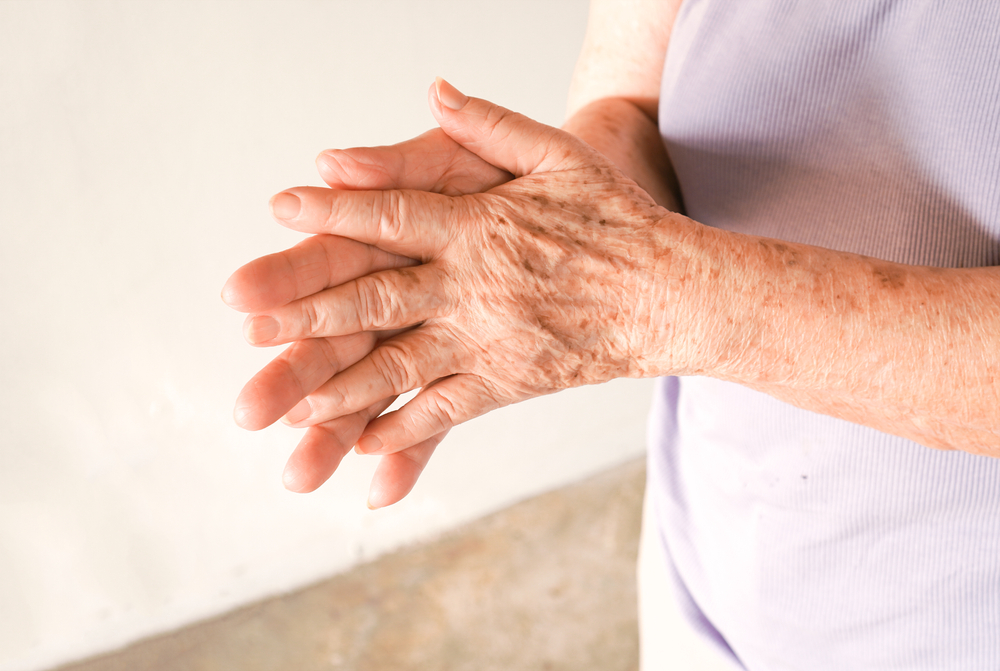How to Maintain Skin Integrity in the Elderly
Category:

If you have a skin injury or have been exposed to environmental factors such as radiation, you may be at risk for impaired skin integrity. This results in adverse skin conditions. Luckily, there are steps you can take, such as enjoying a nutritious diet or practicing good hygiene, and risk factors you can monitor to keep your skin feeling healthy. Let’s take a closer look at some common conditions, the principles of skincare in the elderly, and how to maintain skin integrity in the elderly.
Common Senior Skin Conditions
When you don’t properly maintain your skin integrity, it can result in numerous circumstances. Here are a few common skin conditions elderly people experience.
- Age spots: brown patches appearing on sun-exposed skin
- Wrinkles: the most visible sign of aging skin; follows chronic sun exposure and forms when the skin loses its flexibility; more common in smokers than nonsmokers
- Facial movement lines (or worry/laugh lines): form in the 40s or 50s, when the skin loses its elasticity
- Skin cancer: most commonly caused by repeated and unprotected sun exposure
- Dry and itching skin: caused by the loss of oil glands, which help keep the skin soft; can be a sign of kidney disease, liver disease, and diabetes
- Bedsores: a fairly common problem for people who have trouble moving on their own; form from pressure when people lie in bed or sit in a chair for long periods of time
- Exfoliative Dermatitis: excessive peeling and shedding of skin; severe itching can lead to infections
- Senile Purpura: purplish spots appearing most often on the arms and legs due to thin skin and weak capillaries/blood vessels just below the surface
- Stasis Dermatitis: characterized by dry, itchy skin
- Skin Infections/Infestations: parasitic infestations; bacterial infections
Impaired Skin Integrity Risk Factors
Here are some risk factors for impaired skin integrity. Consult a medical professional to determine your best course of action if you experience or are currently experiencing any of the following.
- Chemical skin irritants (i.e, adhesives, soaps, formaldehyde, hair dyes)
- Dermatitis
- Edema
- Fecal or urinary incontinence
- Radiation exposure
- Hyperthermia/hypothermia
- Imbalanced nutritional state
- Immobility
- Immunological deficit
- Impaired circulation
- Impaired sensation
- Long-term steroid use
- Mechanical factors (e.g., pressure, shear, friction)
- Mechanical trauma (e.g., scratches, skin tear, surgical incision)
- Moisture
- Obesity
- Pruritus
The Risk for Impaired Skin Integrity Care Plan
To maintain skin integrity, it’s important for older adults to take a few steps. Let’s take a closer look at skincare tips for seniors.
- Stay hydrated
- Eat a balanced diet that includes protein, healthy fats, vitamins (A, C, E, and K), and minerals (zinc, iron, and copper)
- Shower and/or bathe with warm water as needed (hot water and frequent bathing increases dry skin and skin irritation) and use mild soaps without perfumes or dyes
- Apply non-greasy lotion on your body after a bath or shower
- Check your skin regularly for changes and report them to your medical professional
- Wear hats and light clothing
- Use sunblock with SPF 15 or higher in addition to wearing hats and light clothing during summer months and use a humidifier during the winter months
- If an individual is bedridden, turn and reposition them every two hours to prevent pressure on the body’s bony areas
- Diabetics should especially uphold good foot skincare to limit cracking, which could lead to infections
Subscribe
Date: 2020-07-06
Category:


